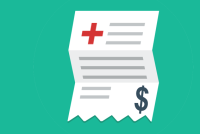Latest KFF Health News Stories
In Sunlit Paradise, Seniors Go Hungry
Even in what look like middle class enclaves in Florida, a growing number of seniors are having trouble keeping food on the table. The rate of food insecurity across the country more than doubled among seniors between the years 2001 to 2013.
Second Opinions Often Sought But Value Is Not Yet Proven
Medical reviews are recommended for patients facing serious illnesses and some individuals glean important advice, but researchers do not have much data showing whether they lead to better outcomes.
Medicaid Expansion Helps Cut Rate Of Older, Uninsured Adults From 12 To 8 Percent
A study finds that in states that did not expand the health program for low-income residents, the rate of uninsurance among 50- to 64-year-olds is twice that of other states.
The Gray Areas Of Assisted Suicide
In bizarre, veiled conversations, some doctors vaguely hint to dying patients and their families how to hasten death. But overwhelmed families are left with profound questions and the feeling that there is no one who can answer them.
Facing Death But Fighting The Aid-In-Dying Movement
A young mother with a grave lung disease worries that a California bill that would make assisted suicide legal could pressure terminally ill people to end their lives.
When Paying The Obamacare Penalty Is Cheaper Than Buying Insurance
For some, playing the high-risk gamble of paying the Obamacare penalty versus carrying health coverage they can’t afford pays off, for others who get sick, the wager leaves them with huge medical bills.
Telemedicine Under Attack As Abortion Rights Supporters Seek More Options For Women
Only two states offer telemed abortions, in which a woman confers with a doctor through an Internet video connection before being prescribed drugs to terminate a pregnancy. Supporters say the practice improves early access to abortion, thus cutting down expenses and complications, but opponents say it is dangerous.
KHN Video: Filling In The Gaps
This video features specially trained paramedic Ryan Ramsdell, who is part of an ambitious plan in Reno, Nevada, to overhaul the 911 system to improve patient care and cut costs.
Paramedics Steer Non-Emergency Patients Away From ERs
In Reno and around the country, community paramedics are providing more care themselves and taking non- emergency patients to facilities other than emergency rooms.
NYC Respite Centers Help Keep Mentally Ill Out Of Hospitals
A quiet seven-bedroom facility is one of four publicly funded mental health centers in New York City that provide an alternative to hospital stays for people on the verge of a mental health crisis.
Small-Business Employees’ Group Slams Washington State For Rejecting Health Plans
While the Washington Education Association health trust has won approval from the state, other groups providing health coverage for thousands of small-business employees are finding their plans in limbo or rejected.
Feds Say That In Screening Colonoscopies, Anesthesia Comes With No Charge
In an announcement this week, federal officials made clear that insurers should not charge patients for the anesthesia used in a screening colonoscopy, but some other routine charges are still in dispute.
S.C. Man Will Get Sight-Saving Surgery As Liberal Donors Chip In
Most said they hope he gets the surgery and changes his political views.
A Top-Rated Nursing Home Is Hard To Find In Texas, 10 Other States
Texas boasts the highest percentage of low-ranked nursing homes in the country, followed by Louisiana, Oklahoma, Georgia and West Virginia.
Learning A New Health Insurance System The Hard Way
A Sacramento couple struggled to take advantage of subsidized health care coverage through Covered California in 2014 – facing one glitch after another. This year, they are more savvy about navigating the system.
Who Should Pay To Save The Sight Of An Uninsured South Carolina Man?
A self-employed handyman chose not to buy health insurance. Now, with his savings exhausted and health problems that may lead to blindness, The Charlotte Observer blogs about how his case poses economic, as well as moral challenges.
Radical Approach To Huge Hospital Bills: Set Your Own Price
A small consulting firm is disrupting hospitals’ business as usual by encouraging employers to pay much less than what hospitals bill — based on its analysis of what is reasonable.
With Specialists In Short Supply, L.A. County Turns To e-Consulting
Facing a shortfall of doctors — and a dearth of money — L.A. County, Calif., is using a web-based system called eConsult that allows primary care doctors and specialists to exchange patient medical records before sending them for referral appointments.
Medicaid Expansion Is Still A Tumultuous Fight In Several States
Medicaid expansion was a big deal in a handful of states’ legislatures this year. Wyoming said no, Tennessee said no. Montana said yes in last-minute maneuvering, and three more states are coming down to the wire, including Utah, Alaska and Florida.
Home Visits By Nurses For First-Time Mothers Help Reduce Government Costs
The Nurse-Family Partnership is one of more than a dozen programs that are eligible for funding under the federal health law. Congress renewed the spending this year.





















